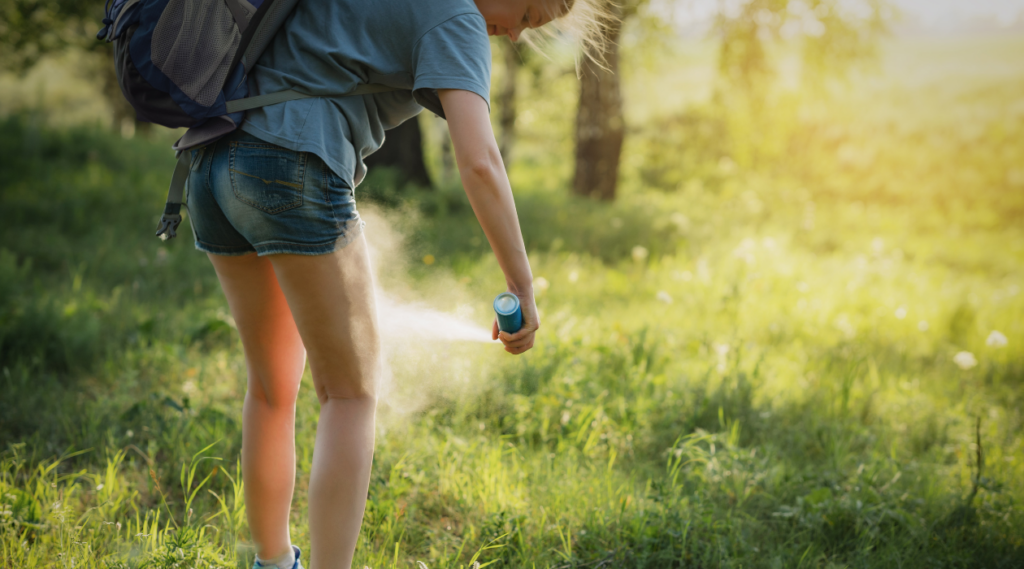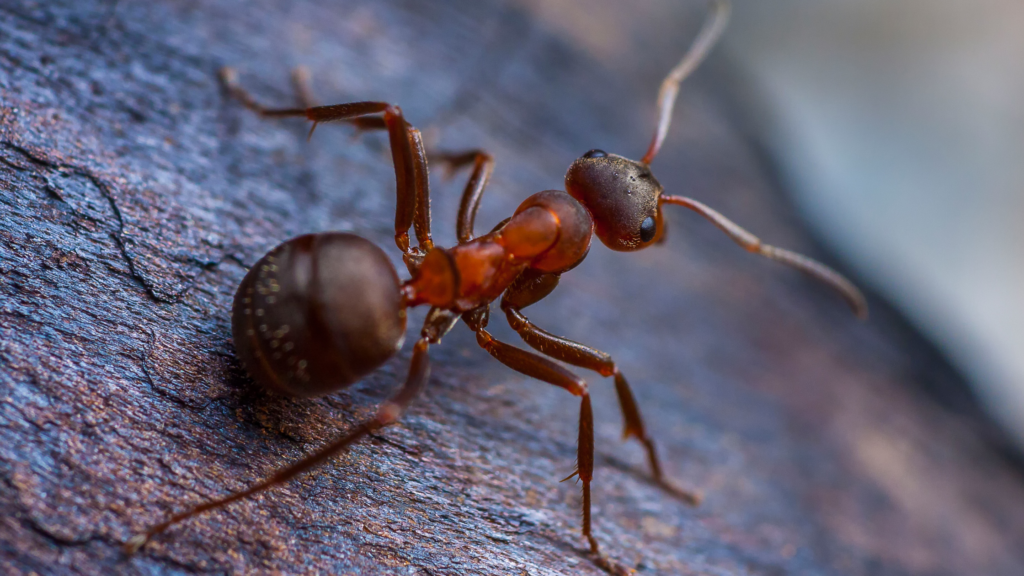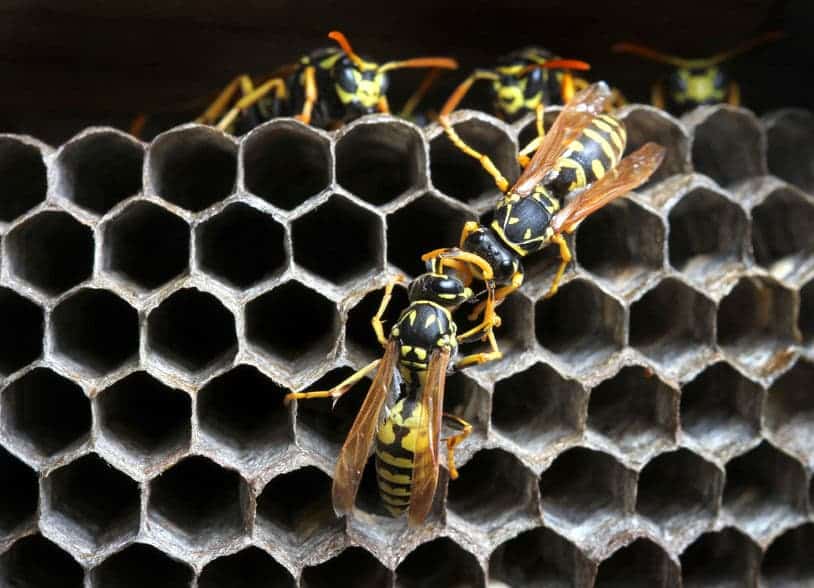
Mosquito bites are by far one of the biggest challenges we face living in Florida. In addition to their annoying personality, these pesky insects can also cause allergies and transmit diseases. Most of us are always on the lookout for the best mosquito repellent whether it be natural or chemical. However, some people have concerns about the potential health risks associated with chemical control of mosquitoes; therefore, as an alternative, they are finding relief in natural repellents. So, what is the most effective natural mosquito repellent?
Chemical Control of Mosquitoes
Chemical control of mosquitoes often contains ingredients like DEET, picaridin, and permethrin. While effective, these chemicals can pose health risks with prolonged or excessive use. However, when used correctly, on a limited basis, these products are typically very low risk.
According to Medical News Today, those who have used high-strength DEET or had exposure to this chemical over an extended period have experienced adverse side effects. Although extremely rare, DEET-based mosquito repellents can cause skin irritation and even neurological symptoms. DEET is also toxic if ingested.
With that said, it is important to note that DEET-based mosquito repellents are considered safe and pose no health risk if used as directed. Millions of people use DEET mosquito repellent each year, and there are limited examples of adverse health impacts.
Natural Mosquito Repellent
As an alternative to chemical control of mosquitoes, natural mosquito repellents like essential oils are a welcome treat to your senses and offer practical applications. According to Medical News Today, many of these special oils “have been found to have various degrees of antimicrobial activity and are believed to have…insecticidal, and antioxidant properties.” Let’s look at a few natural mosquito repellents.
Oil of Lemon Eucalyptus
Derived from the leaves of the lemon eucalyptus tree, this oil contains a compound called PMD (para-menthane-3,8-diol), which has been shown to be effective against mosquitoes. It provides long-lasting protection and has a pleasant citrus scent.
Rose Geranium Oil
This essential oil is extracted from the leaves of the rose geranium plant. It contains compounds like geraniol and citronellol, which repel mosquitoes naturally without the use of chemical controls. Rose geranium oil has a floral aroma and is gentle on the skin, making it a popular choice for natural mosquito repellents.
Citronella
Citronella oil is derived from the leaves and stems of certain types of grass. It works by masking the scents that attract mosquitoes, making it difficult for them to locate their hosts. Citronella candles and oil-based repellents are commonly used in outdoor settings as a natural mosquito repellent.
Be sure to reapply this oil throughout the day.
Patchouli Oil
Patchouli oil is derived from the leaves of the patchouli plant, a type of aromatic herb. Patchouli oil has a strong, earthy scent that mosquitoes find repellent. It contains compounds which have insect-repelling properties. It is also used to treat skin conditions, relieve depression, and to ease cold symptoms.
Thyme Oil
Thyme oil contains thymol, a natural insecticide that can repel mosquitoes naturally. It has a strong, herbaceous scent and can be used in homemade repellent sprays and lotions. Thyme oil should be diluted because it can cause skin irritation. Most topical applications offer at least 89% efficacy for about an hour.
Sage Oil
Sage can act as a natural mosquito repellent and deter other insects like flies and chiggers, when diffused or applied to the skin with a carrier oil. As a bonus, studies have revealed that sage has antibacterial and mood-boosting benefits.
Clove Oil
Clove oil contains eugenol, a compound with insect-repelling properties. It has a warm, spicy scent and can be used in combination with other essential oils to create an effective mosquito repellent. Studies concluded its effectiveness is approximately four hours. However, like thyme oil, clove oil should not be applied undiluted to the skin as it can be absorbed and result in adverse effects.
Peppermint Oil
Peppermint oil has a refreshing scent and contains menthol, which mosquitoes dislike. It can be used in homemade repellent sprays and diffusers to repel mosquitoes naturally. Studies have found peppermint oil to be highly effective as well.
Cedar Oil
Cedar is part of the “Pinaceae” family, a.k.a. the pine family. These have been used as insect repellents throughout history. Cedar oil has a strong, woody scent that acts as a natural repellent for mosquitoes and other insects. It can be applied to the skin or used in outdoor sprays and diffusers to create a barrier against mosquitoes.
Neem Oil
Neem oil is extracted from the seeds of the neem tree and contains compounds like azadirachtin, which serves as a natural repellent for mosquitoes. It has a strong, bitter scent and can be used in homemade repellents and skincare products.
Lavender Oil
Known for its calming properties, lavender oil is widely used to help improve sleep and to reduce anxiety. However, this scent offers the additional benefit of warding off and repelling mosquitoes, flies, fleas, and ticks. It can be applied to the skin or used in diffusers to help keep insects at bay.
Garlic
When rubbed on the skin, some people have found garlic oil to be an effective protection against mosquitoes. In addition, garlic is easy on the environment and does not affect insects that provide value to the landscape.
Safety Precautions
Before using any natural mosquito repellent, remember safety first. Here are four precautions to consider:
- Conduct a patch test to check for allergic reactions or skin sensitivity.
- Dilute essential oils with a carrier oil before applying them to the skin.
- Avoid applying repellents near the eyes, mouth, and open wounds.
- Use caution when applying repellents to children and pregnant women and consult a healthcare professional if necessary.
- Do not use essential oils or mosquito repellents on your pet without consulting a vet.
Who To Call For Mosquito Control
If natural repellents aren’t providing adequate protection against these pesky insects, or if you’re dealing with a severe mosquito infestation, consider calling a local mosquito control company. Pest control professionals like Turner Pest Control can assess your property, identify breeding sites, and implement targeted strategies to reduce mosquito populations effectively.
At Turner, our experienced technicians use environmentally friendly methods to eliminate mosquitoes and prevent future infestations. From larvicide treatments to barrier sprays, Turner Pest Control employs safe, cutting-edge techniques to keep your home and yard mosquito-free.
If you’re wondering who to call for mosquito control, look no further than Turner Pest Control. We are here to help you reclaim your outdoor space. Call us at (800)225-5305 for an evaluation today. You can also fill out a free inspection form here.



